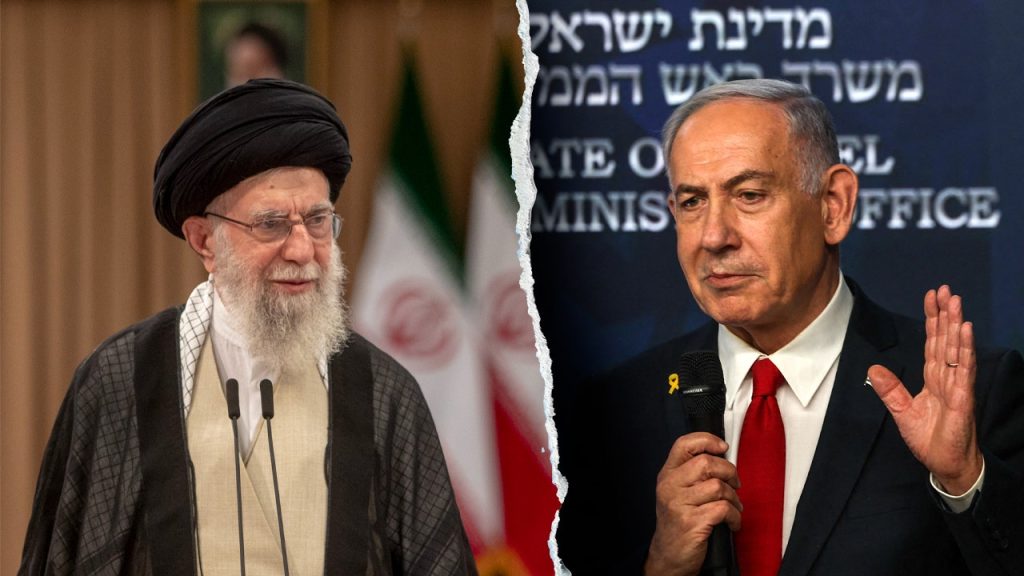Tensions in the Middle East are escalating after the Israeli Defense Forces (IDF) executed a significant strike on Iranian territory following months of contentious nuclear negotiations. This military action comes amid a declared state of emergency in Israel, raising concerns about possible Iranian retaliation. As diplomatic efforts falter, the region braces for the potential ramifications of this conflict.
| Article Subheadings |
|---|
| 1) Overview of Israeli Strikes on Iran |
| 2) U.S. Diplomatic Role and Negotiations |
| 3) Iranian Response and Military Capabilities |
| 4) Regional and International Reactions |
| 5) Future Implications for Middle East Security |
Overview of Israeli Strikes on Iran
In an unprecedented move, the Israeli Defense Forces launched targeted strikes against various Iranian military sites, signifying a marked escalation in hostilities. The strikes are reported to have taken place during a period when diplomatic tensions were already high, catalyzing fears of broader conflict in the region. Explosions were documented in Tehran, specifically around military infrastructure. The IDF stated that these actions were undertaken as preemptive measures to thwart any potential threats emerging from Iran’s nuclear ambitions.
These military actions were prompted by a series of missile exchanges that had been ongoing since April 2024, following Iran’s first direct strikes on Israeli territory. The situation dramatically shifted when Iran launched missiles targeted at Israeli installations on October 1, prompting a retaliatory strike from Israel on October 26 that reportedly aimed to undermine Iran’s nuclear program.
U.S. Diplomatic Role and Negotiations
The role of U.S. diplomacy has proven pivotal in the context of nuclear negotiations with Iran. Under the presidency of Donald Trump, discussions aimed at curbing Iran’s nuclear program were intermittently successful, often hampered by Iran’s insistence on maintaining its enrichment capabilities. As negotiations resumed in April, there was cautious optimism; the Trump administration was working alongside Oman to mediate between Tehran and Washington.
Despite the promising start, the diplomatic landscape deteriorated when the Trump administration imposed additional sanctions on Iran after the first round of talks. This pressure complicated the negotiations which had initially appeared to be making headway. Trump appealed to Israeli Prime Minister Benjamin Netanyahu to refrain from military aggression to give diplomacy a chance; however, the spiraling military tension overtook the diplomatic initiative.
Iranian Response and Military Capabilities
In the wake of Israel’s strikes, Iran’s leadership has vowed to respond decisively to what they term as an act of aggression. Tehran’s military capabilities have been a contentious point, especially considering its development of long-range missiles and advanced air defense systems. The Iranian government has framed its military arsenal as a necessary deterrent against perceived threats from regional adversaries.
They have indicated that their response could take various forms, ranging from retaliatory strikes to unconventional warfare tactics aimed at destabilizing what they perceive as aggressive elements in Israel and the broader region. The Iranian Foreign Minister has publicly emphasized that their military strategy will adapt to the evolving situation, making the prospect of immediate retaliation a distinct possibility.
Regional and International Reactions
The recent escalation in hostilities has elicited a broad spectrum of reactions from regional powers and the global community. Arab nations, facing a precarious balance between supporting Palestinian rights and maintaining relationships with Israel, find themselves in a challenging position. Some regional leaders have called for de-escalation and dialogue, fearing that continued military conflict could have dire consequences for stability.
International organizations have called for all parties involved to exercise restraint and engage in diplomatic dialogue. Concerns are mounting that a full-scale war could erupt, potentially drawing in other countries, destabilizing oil markets, and impacting global security. The United Nations has reiterated the importance of dialogue to find a peaceful resolution to the crises.
Future Implications for Middle East Security
The implications of Israel’s military actions against Iran are profound for Middle East security. Should Iran choose to retaliate effectively, the conflict could spiral into a wider regional war, drawing in multiple nations and complicating international alliances. Stability in the region may become increasingly tenuous as both sides adopt aggressive military postures.
Moreover, the efficacy of diplomatic channels will come under scrutiny. If military solutions continue to dominate, future negotiations regarding Iran’s nuclear program may stall, leading to increased hostilities. The coming weeks will be crucial in determining whether diplomatic efforts can be revived or if the cycle of violence will prevail, fundamentally altering the landscape of Middle Eastern geopolitics.
| No. | Key Points |
|---|---|
| 1 | Israeli strikes target Iranian military sites amid escalating tensions. |
| 2 | U.S. diplomatic efforts have been central but remain complicated by aggression from both sides. |
| 3 | Iran vows to retaliate, with heightened military readiness causing regional instability. |
| 4 | Global response includes calls for restraint and renewed dialogue between conflicting parties. |
| 5 | The outcome of this conflict could reshape Middle Eastern geopolitics significantly. |
Summary
The military actions by Israel against Iran signify a serious escalation in long-standing tensions over nuclear proliferation and regional power dynamics. While diplomatic conversations have intermittently aimed at reducing hostility, the ongoing violence threatens to unravel these efforts completely. The response from Iran will be pivotal in shaping the future landscape of security in the Middle East, making it imperative for all stakeholders to contemplate pathways to peace.
Frequently Asked Questions
Question: What initiated the Israeli strikes on Iran?
The Israeli strikes were initiated in response to Iran’s missile attacks on Israeli territory, escalating tensions that had been developing since early 2024.
Question: How have U.S. officials responded to the situation?
U.S. officials have urged for restraint from both Israel and Iran and emphasized the importance of ongoing diplomatic discussions to address nuclear concerns.
Question: What are the potential consequences of this conflict?
The conflict could lead to regional instability, provoke military responses from Iran, and complicate international diplomatic efforts to manage nuclear proliferation in the area.
